March 1, 2021
We need to talk about Red Industries
 We need to talk about Red Industries. More specifically we need to talk about the firm’s Walley’s Quarry landfill site in the town of Newcastle-under-Lyme.
We need to talk about Red Industries. More specifically we need to talk about the firm’s Walley’s Quarry landfill site in the town of Newcastle-under-Lyme.
First up, a disclaimer. I am a native of the town. Fairly recently, I returned to live there after many years away. Most importantly in the context of what I am about to write, my mum was laid to rest in the town. Her grave lies in the main cemetery of the village of Silverdale.
Silverdale has a population of a little under 5,000 people. The Borough of Newcastle-under-Lyme is largely formed from a number of similar villages and has a total population of about 130,000.
Yet this small village in this small town is the source of more complaints to the UK’s Environment Agency than any other location in the country. Last weekend alone the council received around 2,000. Many hundreds more were made to the EA (exact numbers are vague although the EA admits it was a record number). Those complaints include one of my own. All referred to the polluting stench of sulphurous rot emanating from the landfill site in the village, owned by Red Industries.
Call the EA reporting hotline and the first question you are asked before saying anything else is whether the complaint is about Walley’s Quarry. That tells its own story.
The wider problem
Among the complainants were local schools, Keele University and the local hospital. To put this into context, the hospital is 2.5 miles away from the landfill and the stench was reported inside the building. My own home is around 2 miles away and my complaint about Red Industries and its hell hole was made from there.
My mother’s grave lies 100 yards from the entrance to the site. I now cannot visit her without heaving.
God alone knows how awful it must be for mourners at funerals. And how much worse for those who live nearby. Although you can get some idea from the activist Facebook Group set up to tell their stories. Those stories have amped up since the site was granted a new licence last year. That doesn’t seem a coincidence.
I could say the Environment Agency is pussy footing around the issue, but they are not even doing that. Last weekend’s deluge of complaints to the agency coincided with the introduction of new monitoring equipment at the site. On Monday it became apparent that this equipment wasn’t even turned on.
And so, the suggestion from MP Aaron Bell that the weekend should be considered an incident in its own right can be dismissed by the very people supposedly responsible for protecting the environment. I don’t know what they make of his raising the issue in Parliament.
And the response of Red Industries to what is happening? It is to hide behind regulations and the skirt tails of the useless EA, refuse to acknowledge the problem and write intimidating letters to the MP.
A new motion put forward to the council suggests that the site needs to close while a better plan is formulated. The leader of the council has called on the local head of the EA to resign and for the site to be closed permanently. His organisation is now actively at loggerheads with the EA. This is getting very real, very quickly.
Something needs to change and soon. The site as managed by Red Industries is – at the very least – worsening the daily lives and wellbeing of tens of thousands of people. It may well be affecting their physical health. These people are being let down by the Environment Agency which needs to be far more proactive and possibly aggressive in its dealings with Red Industries. Already there have been minor protests, including one man chaining himself to the gates of the site. But if local people cannot rely on the agencies that should be protecting them, we might expect those protests to ramp up.
This is a personal post, but it’s very important to me. It will stay online but not appear on the homepage.






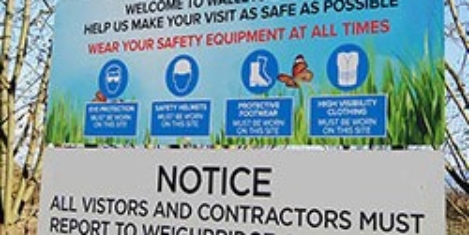
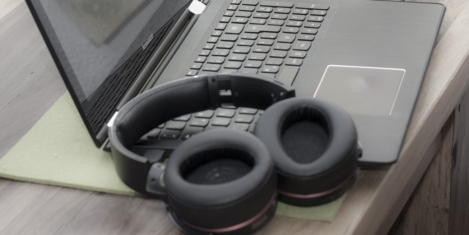
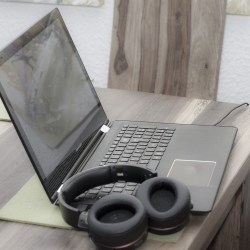 The much discussed idea of Zoom fatigue turns out to be a real phenomenon according to new peer reviewed research from Stanford academics. The study published in the American Psychological Association’s journal
The much discussed idea of Zoom fatigue turns out to be a real phenomenon according to new peer reviewed research from Stanford academics. The study published in the American Psychological Association’s journal 
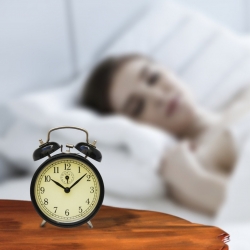 With the Government setting out its roadmap for the lifting of Covid-19 restrictions, workers are set to return to offices later this year. However, new working practices mean they will still split their time between the office and home.
With the Government setting out its roadmap for the lifting of Covid-19 restrictions, workers are set to return to offices later this year. However, new working practices mean they will still split their time between the office and home. 
 UK employers claimed £24 billion of free labour last year because of workers doing unpaid overtime, according to new analysis published by the
UK employers claimed £24 billion of free labour last year because of workers doing unpaid overtime, according to new analysis published by the 
 The vaccine rollout is well on its way, the Government has set out its road map for easing lockdown and it seems there is light at the end of the tunnel. Organisations can hopefully now start to shift mindsets away from the negativity of the past months and create a positive outlook for the future. So, should leaders and managers now be pasting on the smiles, dishing out the motivational pep talks and inspirational emails? Should they aim to create a sense of positivity at work. No, most definitely not.
The vaccine rollout is well on its way, the Government has set out its road map for easing lockdown and it seems there is light at the end of the tunnel. Organisations can hopefully now start to shift mindsets away from the negativity of the past months and create a positive outlook for the future. So, should leaders and managers now be pasting on the smiles, dishing out the motivational pep talks and inspirational emails? Should they aim to create a sense of positivity at work. No, most definitely not. 
 The feelings of isolation being experienced by employees is the biggest concern IT and cybersecurity teams have around home working, say almost one third (31 percent) of respondents to the latest Twitter poll run by
The feelings of isolation being experienced by employees is the biggest concern IT and cybersecurity teams have around home working, say almost one third (31 percent) of respondents to the latest Twitter poll run by 
 Whilst initial lockdowns saw a positive response from managers looking to support their teams, it seems maintaining this level of empathy a full year later is for some leaders proving unsustainable claims business training course provider,
Whilst initial lockdowns saw a positive response from managers looking to support their teams, it seems maintaining this level of empathy a full year later is for some leaders proving unsustainable claims business training course provider, 
 Of all the opportunities for positive change driven by the pandemic, the most important may be the least talked about. And that’s in spite of the fact that both workers and organisations as well as governments and other bodies around the world are aware and in favour of it and its consequences are most far reaching, affecting us all. It is, of course, the chance to do something significant about climate change and the environment.
Of all the opportunities for positive change driven by the pandemic, the most important may be the least talked about. And that’s in spite of the fact that both workers and organisations as well as governments and other bodies around the world are aware and in favour of it and its consequences are most far reaching, affecting us all. It is, of course, the chance to do something significant about climate change and the environment. 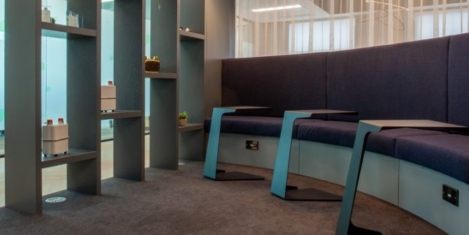
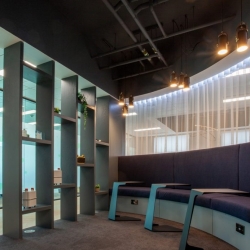 New data from real estate consultancy
New data from real estate consultancy 
 The UK COVID-19 vaccination programme is well underway. Once the over 50s, younger people with health conditions, NHS and care workers have received the vaccine, Prime Minister Boris Johnson has been clear that current lockdown restrictions could be lifted in stages with schools and business a top priority. The situation is under review, but there is an expectation that business premises could reopen as early as Easter, when a large proportion of the working age population may not have been vaccinated. That means the focus in workplaces and other multi-occupant spaces, especially those open to the public, must remain on limiting transmission to prevent the spread of
The UK COVID-19 vaccination programme is well underway. Once the over 50s, younger people with health conditions, NHS and care workers have received the vaccine, Prime Minister Boris Johnson has been clear that current lockdown restrictions could be lifted in stages with schools and business a top priority. The situation is under review, but there is an expectation that business premises could reopen as early as Easter, when a large proportion of the working age population may not have been vaccinated. That means the focus in workplaces and other multi-occupant spaces, especially those open to the public, must remain on limiting transmission to prevent the spread of 
 Research released by
Research released by 








February 26, 2021
The link between wellbeing and green design is driving material innovation
by Craig Stuart • Comment, Environment, Wellbeing, Workplace design